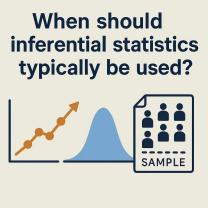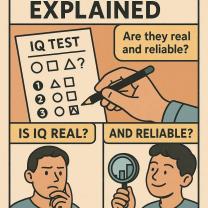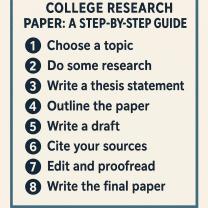What is the average vocabulary of an adult?
Language is the bedrock of human civilization, a complex tapestry woven from sounds, symbols, and, most crucially, words. Our vocabulary – the collection of words we understand and use – is more than just a list of terms; it’s a dynamic force that shapes how we perceive the world, articulate our thoughts, and connect with others. The richness of our lexicon directly influences our ability to think critically, communicate nuanced ideas, and express the full spectrum of human experience.
As we journey through life, our vocabulary continually evolves, a testament to years of education, myriad reading adventures, and the countless interactions that color our existence. Yet, amidst this constant linguistic evolution, a common question piques many people's curiosity: How many words does the average adult truly command? Is there a definitive number, and how is it even possible to quantify such an intricate aspect of our cognitive landscape?
This article aims to unravel the intriguing world of adult vocabulary. We will delve into research-based estimates of average word knowledge, explore the sophisticated methods linguists employ to measure it, and examine the diverse factors that contribute to its expansion or contraction. Furthermore, we’ll provide actionable strategies for adults eager to cultivate their word power, ultimately enhancing their communication skills and cognitive agility.
What Is the Average Vocabulary of an Adult?
Estimating the average vocabulary size of an adult is a complex task, but linguistic research offers compelling insights. For a native English-speaking adult, the consensus suggests an understanding of somewhere between 20,000 to 35,000 words. This range accounts for a broad spectrum of individuals, from those with moderate reading habits to those with extensive exposure to language.
Individuals who are highly educated, avid readers, or those whose professions demand a rich vocabulary often possess an even larger lexicon, potentially recognizing anywhere from 50,000 to 70,000 words. These individuals typically engage with diverse texts and complex ideas, constantly expanding their word knowledge.
It's crucial to distinguish between different types of vocabulary. Our passive vocabulary (also known as recognition vocabulary) comprises the words we understand when we hear or read them. This is typically much larger than our active vocabulary (or productive vocabulary), which consists of the words we actively use in speaking and writing. For example, you might understand "ephemeral" or "ubiquitous" when you encounter them, but rarely use them in daily conversation.
Interestingly, vocabulary size doesn't continuously grow indefinitely. Research indicates that word knowledge often peaks in middle adulthood, typically between the ages of 40 and 60. After this period, there may be a slow, gradual decline, especially if individuals do not actively engage in activities that maintain or expand their vocabulary, such as regular reading and continuous learning. Therefore, consistent intellectual engagement is key to preserving and even enhancing one’s adult word knowledge throughout life.
How Is Vocabulary Size Measured?
Measuring something as dynamic and expansive as vocabulary size is no simple feat, and linguists and psychologists employ a variety of sophisticated methods to arrive at their estimates. These approaches attempt to quantify the vast landscape of words an individual knows, recognizing the inherent challenges in doing so.
One common method involves vocabulary tests, where participants are asked to identify the meanings of specific words, match words with their synonyms, or use words correctly in sentences. These tests often draw from a representative sample of words across different frequency levels to extrapolate an individual's total vocabulary.
Another approach is word frequency analysis. This involves comparing the words an individual claims to know or demonstrates understanding of against standard dictionaries or large linguistic corpora (collections of texts and speech). By analyzing the frequency with which words appear in a language, researchers can estimate how many words from that language an individual is likely to know.
Several online tools and academic scales have been developed for this purpose. Websites like VocabularySize.com offer interactive quizzes that estimate an individual's vocabulary. More formal academic tools include the Peabody Picture Vocabulary Test (PPVT), which measures receptive vocabulary by asking individuals to select a picture that best represents a spoken word.
It's important to note that the accuracy of these measurements can depend on several factors, including the individual's language exposure, dialect, and even what is counted as a "word." For instance, are root words and their inflected forms (e.g., "run," "running," "ran") counted as separate words or variations of a single lexical entry? These methodological nuances significantly impact the final adult vocabulary statistics. Furthermore, even fluent speakers may sometimes overestimate their vocabulary, confusing words they vaguely "recognize" with those they truly understand and could use appropriately.
What Are the Different Types of Vocabulary?
When we talk about vocabulary, it’s not a monolithic concept. Linguists categorize word knowledge into several distinct types of vocabulary, each reflecting a different mode of language engagement. Understanding these distinctions helps us appreciate the multifaceted nature of our linguistic abilities.
Reading Vocabulary: This refers to the words we recognize and comprehend when we encounter them in written text. For many adults, this is often their largest vocabulary type, as reading exposes us to a broader range of words than everyday conversation. Books, articles, and various forms of written media are primary drivers for expanding our reading vocabulary.
Listening Vocabulary: These are the words we understand when we hear them spoken. While there's significant overlap with reading vocabulary, listening vocabulary also encompasses words common in spoken dialogue that might be less frequent in formal writing, as well as the ability to decipher words amidst different accents, intonations, and speech speeds.
Speaking Vocabulary: This type consists of the words we actively use in our everyday conversations. It's generally smaller than both reading and listening vocabularies because speaking requires not just understanding a word, but also being able to retrieve it quickly and accurately under pressure. Our speaking vocabulary is heavily influenced by our social interactions and immediate environment.
Writing Vocabulary: These are the words we intentionally employ when we write. Similar to speaking vocabulary, it's a productive form of word knowledge. However, writing often allows for more deliberation and precision, leading to the use of more sophisticated or formal words than might appear in casual speech. It expands through practice in drafting essays, reports, emails, or creative pieces.
Each of these vocabulary types grows differently. For instance, an individual’s reading vocabulary can expand rapidly through extensive reading, as books introduce new words and concepts in context. In contrast, speaking vocabulary relies more on active social interaction, requiring us to experiment with and integrate new words into our verbal repertoire. The specific demands of one’s education or profession can also cause one type of vocabulary to dominate over others. For example, a scientist might develop a rich technical jargon within their writing vocabulary, while a poet might prioritize a nuanced and evocative reading and writing vocabulary.
What Factors Influence an Adult’s Vocabulary Size?
An adult's vocabulary is not static; it's a dynamic reflection of various life experiences and cognitive habits. Several key factors significantly influence the growth and breadth of adult word knowledge, painting a diverse picture of linguistic proficiency.
Perhaps the strongest predictors of vocabulary growth are education level and reading habits. Individuals with higher levels of formal education typically have larger vocabularies due to greater exposure to academic texts and a broader range of subjects. Similarly, avid readers consistently encounter new words in context, learning their meanings and nuances, thus constantly expanding their passive and active vocabularies.
Occupation and environment also play a crucial role. Jobs that demand frequent reading, complex communication, or extensive writing – such as those in law, academia, journalism, or medicine – inherently foster vocabulary expansion. Conversely, environments with limited linguistic diversity or intellectual stimulation may offer fewer opportunities for word growth.
Age and cognitive health present an interesting dynamic. While vocabulary generally grows throughout childhood and young adulthood, often peaking in middle age, it may plateau or even slowly decline in later years if not actively maintained. Cognitive health, including factors like memory and processing speed, can also affect word retrieval and learning new words.
Media exposure is another significant, albeit often underestimated, factor. Engaging with diverse forms of media, such as thought-provoking podcasts, documentary films, quality online articles, and literary fiction, can introduce new words and concepts. The breadth and depth of the media we consume directly impact the linguistic input we receive.
Finally, bilingualism offers a unique perspective. While bilingual individuals might have slightly smaller vocabularies in each individual language compared to monolinguals, their combined vocabulary across both languages is often larger, and they typically demonstrate greater overall linguistic flexibility and cognitive benefits. Beyond these external factors, personal curiosity and active word-learning habits are paramount. A genuine interest in language and a proactive approach to understanding new words are powerful drivers for continuous vocabulary enrichment.
How Can I Improve My Vocabulary as an Adult?
Improving your vocabulary as an adult is an achievable and rewarding endeavor that can significantly enhance your communication, cognitive abilities, and overall understanding of the world. It’s a journey of continuous learning, and fortunately, there are many actionable strategies you can employ to consistently improve your vocabulary.
Read Widely: This is perhaps the most effective method. Immerse yourself in a variety of texts: classic novels, contemporary fiction, non-fiction books on diverse subjects, reputable newspapers, academic essays, and quality blogs. When you encounter an unfamiliar word, try to infer its meaning from context first. If still unsure, look it up. Reading exposes you to words in natural settings, aiding retention.
Use a Vocabulary Journal or App: Dedicate a notebook or utilize a digital app (such as Anki, Quizlet, or WordUp) to record new words. For each word, include its definition, part of speech, a synonym, an antonym, and a sentence illustrating its correct usage. Regularly review these entries to reinforce learning.
Learn Roots, Prefixes, and Suffixes: Many English words are built from Latin and Greek roots and affixes. Understanding common roots (e.g., "bene-" for good, "mal-" for bad), prefixes (e.g., "un-", "re-"), and suffixes (e.g., "-ology", "-tion") can help you decode the meanings of numerous unfamiliar words.
Engage in Conversations with Diverse Speakers: Actively seek out opportunities to converse with people from different backgrounds, professions, and cultures. Listen attentively to their word choices and don't be afraid to ask for clarification if you hear a word you don't know. Participating in professional communities or interest groups can also introduce specialized vocabulary.
Play Word Games: Crosswords, Scrabble, Boggle, and various online word puzzles are not only entertaining but also highly effective for stimulating your brain and recalling words. These games challenge your existing vocabulary and can introduce you to new words through pattern recognition.
Practice Writing: Consciously integrate new words into your writing, whether it’s in emails, reports, creative stories, or even social media posts. Actively using a new word in your own sentences helps to solidify its meaning and integrate it into your active vocabulary. The act of writing provides a low-pressure environment to experiment with new linguistic tools.
The key to successful vocabulary expansion is consistency. Small, daily habits — such as learning one new word a day, reading for 30 minutes, or doing a crossword puzzle — accumulate into significant long-term growth. Embrace curiosity and view every new word as another tool for clearer thinking, sharper writing, and deeper understanding.
Conclusion
The journey into understanding the average vocabulary size of an adult reveals a fascinating landscape where linguistic proficiency is not just about numbers, but about continuous growth and cognitive enrichment. While research suggests that the average adult understands tens of thousands of words – typically ranging from 20,000 to 35,000 – this figure is far from a static endpoint. Instead, it represents a dynamic foundation upon which further linguistic mastery can be built throughout life.
Vocabulary acquisition is an ongoing process, heavily influenced by education, reading habits, occupation, and even our active curiosity. We've seen how linguists meticulously measure this complex phenomenon and how different types of vocabulary (reading, listening, speaking, writing) contribute uniquely to our overall linguistic prowess.
Ultimately, the power to expand one’s vocabulary lies within each individual. By embracing a mindset of continual learning – through wide reading, active engagement with new words, deliberate practice in writing, and meaningful conversations – adults can ensure their word knowledge never stops expanding. Every new word learned is not merely an addition to a list; it is another instrument for clearer thinking, another shade for sharper writing, and another lens for deeper understanding of the world around us. So, keep reading, keep exploring, and let your vocabulary be an ever-growing testament to your lifelong intellectual curiosity.












